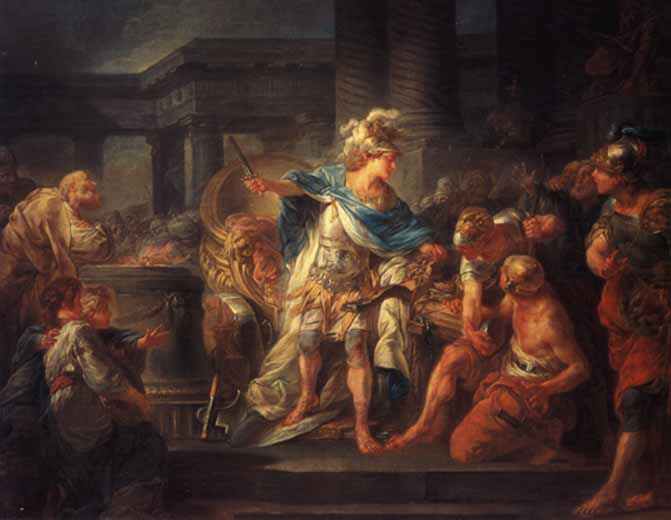In this series we’ve looked at “social justice”—what it is, why it’s wrong, and why it matters.
In view of what I’ve said, we are in a better place to understand Scripture on concepts such as oppression, judgment/justice, and government.
The three remaining posts summarize my findings.
What is oppression, according to Scripture?
Are the poor “oppressed” simply because the rich are allowed to keep what they produce? Not at all. When Scripture decries injustice it condemns corrupt judges who turn aside the needy from judgment and “take away the right” from the poor people, rob the fatherless, and make prey of widows (Isaiah 10:2, Matthew 23:14).
Partial rulers are the oppressors.
Righteous judgment consists in delivering the spoiled out of the hand of the oppressor, doing no wrong, doing no violence to the weak, nor shedding blood (Jeremiah 22:3). To build your own house by the work of another, unpaid, that is oppression (Jeremiah 22:13).
Today in the United States we have a curious case in which the poor oppress themselves by depriving the productive of the ability to produce. Just as Samuel warned, the government reaches further and further. It takes our sons and appoints them as soldiers and servants of the state. We cry out at the injustice as rulers put our children to the task of their work and their wars (1 Samuel 8:10-20). We see taxes and oppressions comparable to the grievous levies of Solomon (1 Kings 5:13-18, 1 Kings 12:4).
True judgment does not involve making the neighbor on your left serve the neighbor on your right.
That is oppression. Compassion is the province of individual men, not the state. In Zechariah 7:9-10, God calls the people execute true judgment, and to:
Shew mercy and compassions every man to his brother: and oppress not the widow, nor the fatherless, the stranger, nor the poor; and let none of you imagine evil against his brother in your heart.”
This passage envisions individual men showing compassion to their brothers, those they know. It commands people not to steal from the defenseless, nor to imagine evil against them—individual sins.
Zechariah 7:9-10 echoes Micah in treating justice and mercy as compatible. How? Judgment means stopping wrong-doers (the role of the state). Mercy means helping those in need (the role of the individual).
Yes, God does command us to care for the poor and the oppressed, and we should—as individuals.
When the state becomes involved, it adds to the oppression, for the state is, and can only be, an agent of force. History shows that when men are cut down and shackled they hate one another. But when they have the chance to achieve and to produce, they learn generosity. For evidence, compare the petty jealousy of the modern Russian to the overwhelming generosity of Americans. When men are left free, many do desire to help each another; and they are able to.
Let those who call for mercy and relief merely open their eyes to learn what is mercy and what is oppression. Then let them leave man free.
In this series:
